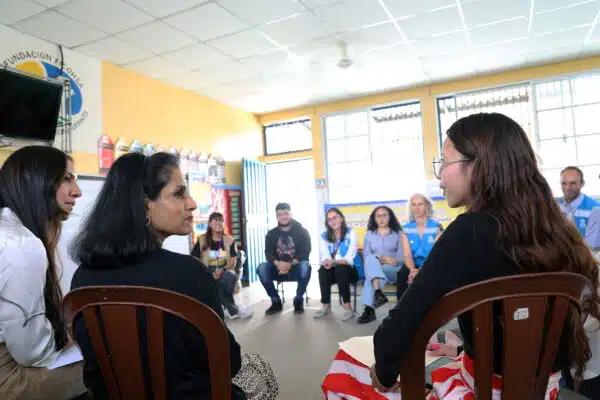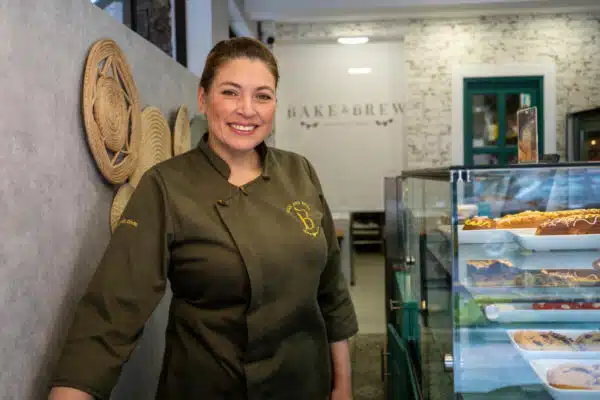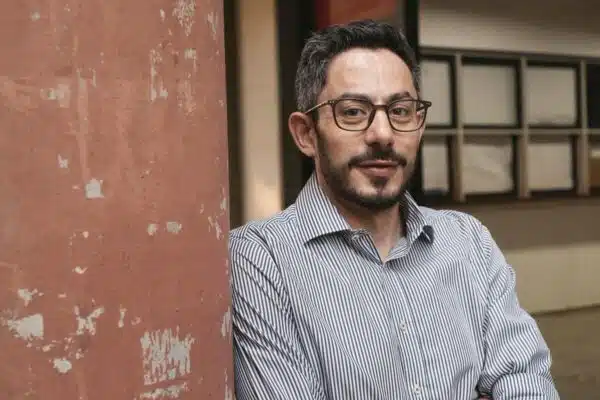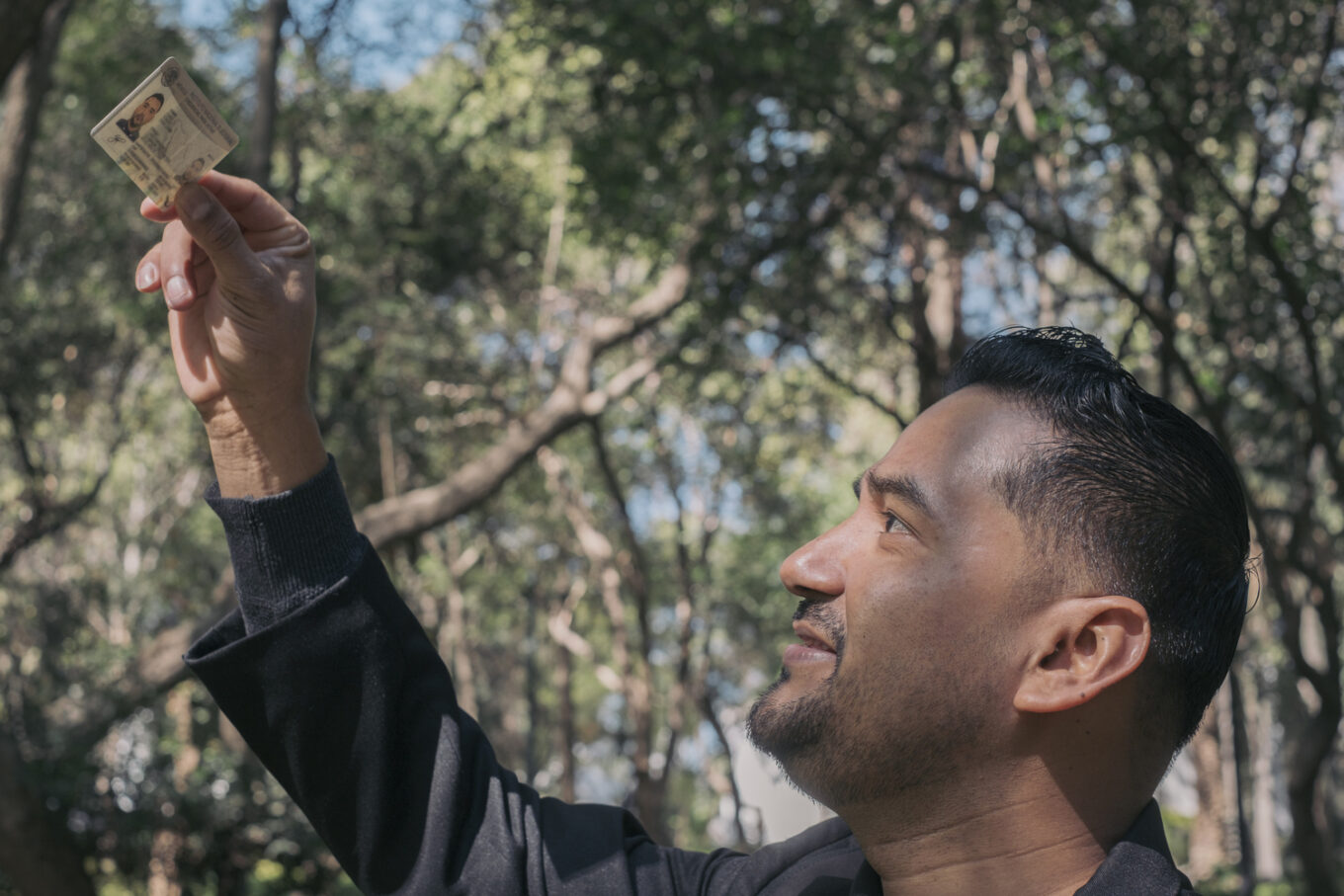
Johan holds up his new Mexican ID card. He opted for naturalization six years after fleeing Honduras and starting a new life in Mexico City. © UNHCR/Jeoffrey Guillemard
For Andrea and Johan, becoming Mexican citizens has meant gaining a sense of belonging to the country that has given them protection and stability
By Mateo Privitera Torres, in Mexico City, Mexico
Their paths have never crossed. They don’t know each other, and yet there is something that connects Andrea and Johan: the most important moment of their lives happens to be the same. It was the moment they heard the words: “As of today, you are officially a Mexican citizen.” Just a few years after fleeing their countries, they both held in their hands a Mexican identification card.
Andrea, 29, still vividly remembers the night six years ago when she knocked on the door of a shelter in Mexico City, after fleeing Venezuela due to the deteriorating socio-economic and humanitarian situation there. She carried a small backpack containing “her whole life”.
“It is the moment that marked me the most because, in just five minutes, I saw my whole life pass by,” she says.
At the time, Johan, 35, was enduring constant harassment and threats from criminal groups in his hometown in Honduras. Since he was a child, gangs had tried to forcibly recruit him. As an adult, the intimidation did not stop. Johan worked as a driver for a Chinese food restaurant, but moving around the city to deliver supplies to different branches was nearly impossible. Wherever he went, he had to pay the gangs to pass through: “You pay taxes to the government, and you also pay the gangs, supposedly for protection,” he explains.
One day just over five years ago, Johan ran out of money to pay and was shot. Despite his wound, he realized he had no choice but to flee that same night. “My life was in danger because of the gangs. Honestly, if you don’t pay, they kill you. It’s that simple.”
Johan joined other asylum-seekers and migrants who were departing from Honduras and heading north. After a day of travel, he separated from the others and continued his journey alone. Once in Mexico City, he lived in a shelter for three months until he found a job and a place to rent. Although he initially planned to reach the United States, he decided to stay in Mexico and seek asylum there.
Creating long-term solutions for refugees
In recent years, Mexico has become a destination country for people in need of international protection. It received a record 140,000 asylum claims in 2023, making it among the top five countries with the highest number of asylum applications worldwide.
Mexico allows foreign nationals – including refugees – to apply for Mexican nationality after five years of residency, and after only two years for nationals of Latin American countries. Citizenship provides access to identity documents, the right to vote and travel freely to other countries, but it also means finally belonging to the country and the opportunity to establish deep roots.
The legislation embodies the spirit of protection and long-term solutions for refugees established in the 1984 Cartagena Declaration, which celebrates its 40th anniversary in 2024.
- See also: Following high-level mission, UNHCR recognizes Central America and Mexico’s response to displacement
UNHCR, the UN Refugee Agency, works closely with Mexican authorities to enable refugees to access citizenship. In 2022 and 2023, UNHCR and its partners supported nearly 800 refugees in their naturalization process, including Andrea and Johan.
“I had a dream to be Mexican, and I was able to fulfil it.”
Andrea
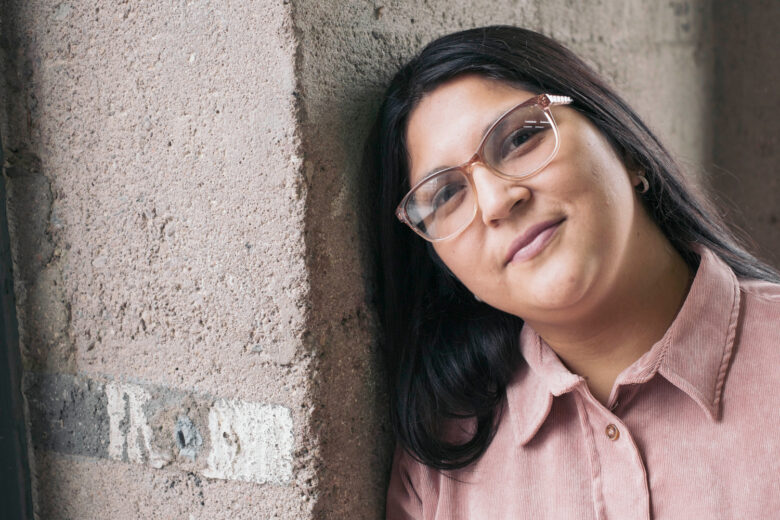
Andrea has been living in Mexico since fleeing Venezuela seven years ago. © UNHCR/Jeoffrey Guillemard
“That day I cried with emotion,” says Andrea about hearing she was eligible for naturalization. “I had a dream to be Mexican, and I was able to fulfil it. It was the last step I had to take to have my life established here.”
By then, Andrea was living in Aguascalientes, in central Mexico, and working in the telemarketing department of a multinational beverage company. She had been able to finish her university studies in Mexico thanks to a scholarship she received with UNHCR’s help. Thanks to naturalization, she was finally able to access banking services, including credit cards and loans.
In her free time, Andrea has two passions: being a food influencer on social media to promote local businesses and volunteering at a local animal shelter to find homes for abandoned dogs, three of which she has taken in herself. “It makes me feel fulfilled because they are also refugees in one way or another,” she says. “What I went through, I don’t want the puppies to go through. It’s my way of giving back.”
“I am very proud to be Mexican.”
Johan
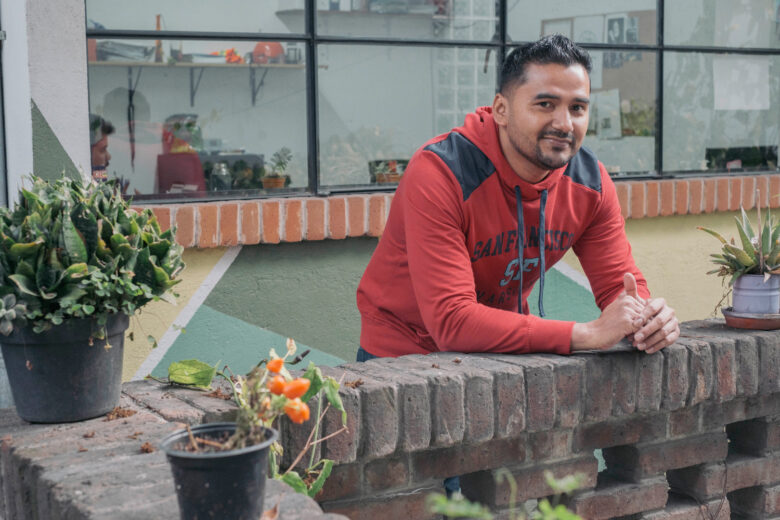
Johan dreams of continuing his studies and buying a house in Mexico. © UNHCR/Jeoffrey Guillemard
In Mexico City, Johan has also found a stable job in a department store. “I cried tears of pure happiness,” he recalls about the day he received his naturalization documents. “In Mexico, people always say: a Mexican is born wherever they want to be born. I am very proud to be Mexican, but of course, no one can take away my roots.”
After receiving the documents, he was able to complete his high school studies, which will enable him to pursue better job opportunities and perhaps pursue a university degree in Civil Engineering. Johan loves football and is now a fan of Club America, a popular Mexican football team – a passion he shares with his friends at work.
Andrea and Johan’s paths may never cross, but their stories are still connected, now by their shared dream of buying a house in the country they call home.
Originally published by UNHCR 17 April 2024.



